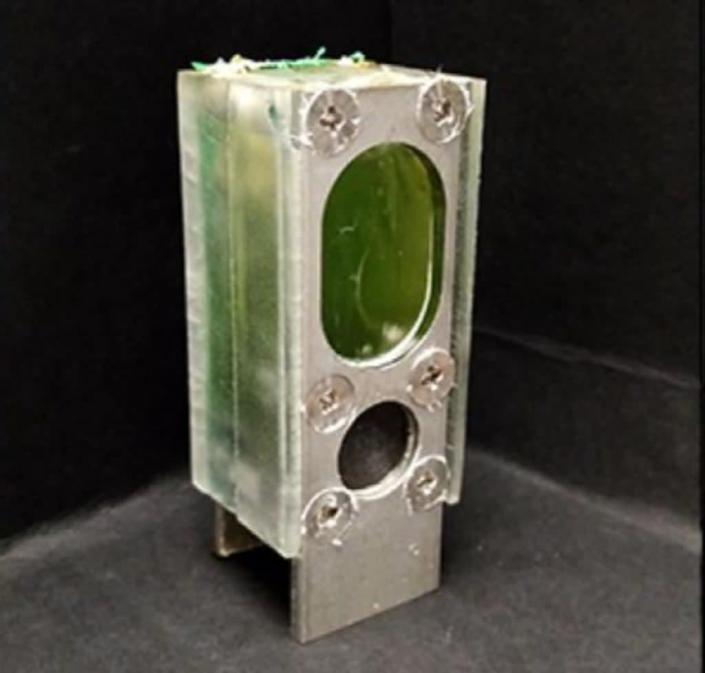Scientists create computer powered by algae that will never run out of battery
[ad_1]

Researchers have built a personal computer that employs algae and will under no circumstances run out of battery.
The breakthrough works by using a species of blue-green algae termed synechocystis that has been powering a microprocessor constantly for a yr employing only light and water as fuel.
The process is somewhere around the dimensions of an AA battery and makes use of photosynthesis to make a very small electrical current, which interacts with an aluminium electrode and to retain a functioning Arm Cortex M0+ microprocessor.

“The escalating Internet of Factors demands an increasing amount of electric power, and we imagine this will have to occur from methods that can generate vitality, rather than simply just store it like batteries,” said Professor Christopher Howe in the College of Cambridge’s Office of Biochemistry.
“Our photosynthetic system does not run down the way a battery does mainly because it’s continuously employing light-weight as the power supply.”
Even nevertheless the personal computer method is dependent on photosynthesis it does not always need light to function, and can carry on generating electric power even when it is darkish. This is because the algae processes its meals even in dark circumstances and as a result carries on to crank out a recent, researchers believe.
The Arm Cortex M0+ processor operated in underneath semi-out of doors problems – with all-natural light-weight and associated temperature fluctuations –and after six months of ongoing electrical power the results had been submitted for publication in a journal report that has now been posted in the journal Electrical power & Environmental Science.
This procedure could be utilized to electrical power little, Net of Items devices – an umbrella expression for sensible engineering that includes meters, lights, speakers, and other gizmos that join to the net. It is estimated that there will be a single trillion of these gadgets by 2035.
Researchers say it is likely to be most handy in off-grid conditions or remote places in which acquiring large amounts of electrical power is tough. Moreover, making use of typical lithium-ion batteries for these products would be impractical as it would have to have three instances a lot more lithium than is developed across the planet each individual year.
“We were impressed by how constantly the system labored in excess of a lengthy period of time – we thought it may end just after a several months but it just held going,” reported Dr Paolo Bombelli in the College of Cambridge’s Division of Biochemistry.
[ad_2]
Supply website link
